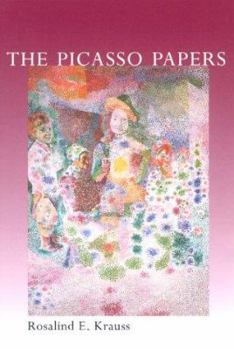The Picasso Papers
Select Format
Select Condition 
Book Overview
Was Picasso a modern Midas who not only turned the trash of everyday life into the gold of Cubist collage but also gave new value to the work of Old Masters? Or was he a monster counterfeiter who mercilessly raided the styles of others? In The Picasso Papers, Rosalind Krauss suggests that the reason we still ask these questions is that modernism itself is a hall of mirrors in which "counterfeit" and "genuine" both reflect the same condition. Krauss brings Picasso's pastiche of other artists brilliantly into focus as the "sublimated" underbelly of Cubism, refashioned in the bright, clean style of Picasso's neoclassicism--a defense that is its own form of practicing the forbidden.
Format:Paperback
Language:English
ISBN:0262611422
ISBN13:9780262611428
Release Date:February 1999
Publisher:MIT Press (MA)
Length:286 Pages
Weight:0.90 lbs.
Dimensions:0.7" x 5.5" x 8.3"
Customer Reviews
1 rating
An Important Text
Published by Thriftbooks.com User , 24 years ago
Rosalind Krauss's brief, glimmering text offers the perfect counterpoint to thin biographical essays on the artist. In _Picasso Papers_, Krauss looks closely at Picasso's early collages, reading them in light of her keen understanding of Picasso's overall ouevre and life. Krauss argues effectively for Picasso's revolutionary use of linguistic structures in the early collages, and mirrors her argument with her poetic use of language. This book is perfect for those interested in the life and work of Picasso and should be required reading for people interested in critical theory and contemporary studies of Modern art.






